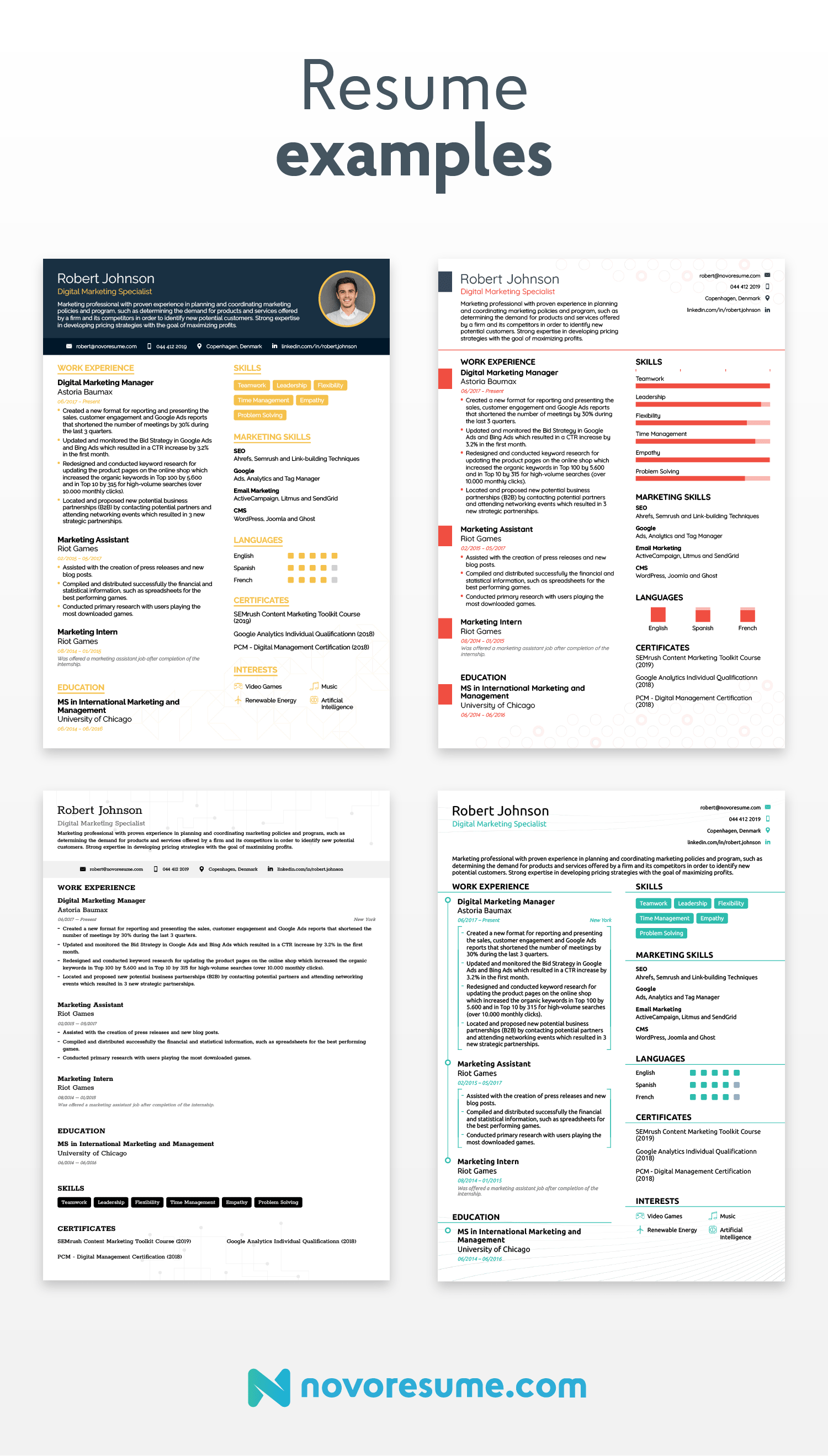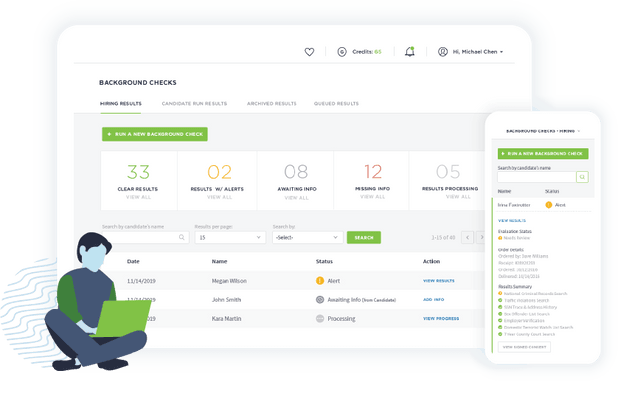Job Hunting: What it is, Steps, and Why it’s a Full-Time Job

Job hunting is often a stressful experience. This is because there's no assurance you'll land your desired job. Ask any job seeker, and you'll learn that they're anxious about the process. This may happen because they see a job search as a clear-cut process. In reality, it involves different job hunting steps that can help them find and land a job.
If you're new to the working world, you may wonder: what is job hunting? What is job hunting for? And how can you successfully do it? Read on to learn the answers to these questions.

What is Job Hunting?
Job hunting is the process of looking for an occupation. People may switch careers, leave toxic workplaces, or learn new skills. Like an actual job, job hunting involves goals, measurable outcomes, set objectives, and progress. Some job hunters go through it quickly, while others take longer. Nonetheless, it can be fulfilling once you follow a specific process.
Here are the seven job hunting steps you should take to land a job.
The first step is accepting who and where you are in your career. This also means knowing that job hunting is a time-consuming process.
Evaluate who you are and where you want your career to go. Assessment helps identify your goals and measure your progress.
Once you know your identity and career direction, determine where you want to work. Learn about different companies and their culture, employees, and industry. You can also use connections to check and get into a particular company.
This step involves submitting your resume and reaching out to potential employers. It also means improving your communication skills to better converse with interviewers.
Going through the job hunting steps mentioned so far can lead you to interviews with prospective employers. Treat interviews as opportunities to market your skills, objectives, and career goals. This is also your chance to learn more about the company and the position you're applying for.
Upon receiving a job offer, you can negotiate the terms with your employer. These terms include your salary, benefits, and work arrangement. Negotiating allows you to explain why you deserve more.
Begin again
Starting a new job means doing everything to be successful at it. Moving jobs also allows you to get better at job hunting and makes you more attractive to potential employers.
Why is Job Hunting a Full-Time Job?
A more specific answer to "what is job hunting?" Job hunting is a full-time job that requires your full and immediate attention. As intimidating as it sounds, it can help you get your desired job, secure better pay, benefits, and more.
Involves a specific process
Seeking a job means going through different job hunting steps. It requires a lot of patience and understanding. Once you land a job, you also become more disciplined.
Requires at least 40 hours a week
Job hunting to land your desired job requires a lot of preparation. You must assess yourself and your career and create an attractive resume and portfolio. You also need to improve your communication skills to impress potential employers.
Prepares you for leadership
Think of job hunting as a stepping stone for leadership. Being a leader means facing a lot of business challenges. Once you've mastered job hunting, you'll be more well-equipped to resolve challenges as a leader.
Treat Job Hunting as the Key to Success
Treating job hunting as a full-time job allows you to resolve work challenges better. It prepares you for a market with high unemployment rates and competition.
With the job hunting steps above, you'll learn what job hunting is for. They can help improve your skills as you move to and from different companies.
We at Career.com understand how difficult job hunting can be. This is why we feature jobs in different categories to simplify your job hunting experience. Find your next job with us today!
Supercharge Your Job Search
Select a career advice topic, other articles about job search.

10 Daily Job Hunt Tasks That Can Help Avoid Stress

4 Reasons Job Hunting is Kept Secret

5 Tips on Social Media Job Search and Networking

6 Top Industries to Consider When Finding a Job Today
The Ultimate Guide to Job Hunt - Land Your Next Job in 2024

Looking to land your dream job, but not sure where to start?
We don’t blame you - job hunt is far from easy. You need to:
- Find the jobs that are a perfect match for your skills.
- Edit your resume to perfection.
- Write that pesky cover letter.
- Answer all those interview questions.
- And that’s just the start.
If all that feels overwhelming for you, you’re not the only one. A lot of people consider job-search to be a scary, daunting process .
But here’s the thing: it doesn’t have to be. The main reason people consider job search to be hard is that they don’t really understand it too well. After all, job searching is a skill on its own.
If you know the ins and outs of resume creation, job interviews, and all other pieces of the process, you’ll see that the job-search process is actually very easy!
This brings us to this guide. We wanted to create the most comprehensive guide to job hunt in the world , something that can turn a job search newbie into an expert in no time! And, well, hope we succeeded!
- Write an Irresistible Resume (That’s Also ATS-Friendly)
- Create a Convincing Cover Letter (That Doesn’t Look Like a Copy-Paste)
- Ace the Upcoming Interview (Even If You’re an Introvert)
But first, let’s start with the basics:
What Does Job Hunting Mean?
Job hunting, job seeking, or job searching is the process of looking for employment, whether it’s because of unemployment, dissatisfaction with the current role, or any other reason.
The job hunt process usually looks something like this:
- Define your career goals. What kind of role are you looking for? Do you want to stick with your current field, or make a career switch?
- Create a resume. Write a resume that’s easy to read, concise, and convincing.
- Pick job boards you want to use. There are dozens of job boards in just about any country. Pick the ones you want to use.
- Apply Rationally. When applying for jobs, don’t spray and pray. Instead, apply specifically for the companies and positions you’re a good fit for.
- Research companies you want to apply for. Don’t just blindly apply for positions - research the role and the company and see if they’re a good fit for you.
- Write a tailored cover letter. Don’t just use a copy-paste cover letter template. Explain to the recruiter why you’re a good fit for the role AND for the company.
- Tailor your resume to the role. Don’t just submit the same resume to every position. Tailor it based on what skills and experiences each employer is looking for.
- Ace the interview. Memorize the common interview questions, practice, and ace the interview.
- And most importantly, get hired!
In this article, we’re going to cover each of these steps one-by-one, starting with #1!
And no, job search isn’t something you do in one evening. You don’t just decide to look for a job on Monday, submit 2-3 applications, get a call for an interview, and land the job.
We wish it was that easy!
In fact, the average job search process can take up to 5 months from the day you submit your first application, to the day you get hired.
What this means is that you should be looking for your new position proactively and on-the-go. You should submit 5-10 relevant applications every day, 5 days a week.
Step #1. Define Your Career Goals
Before you even get started with the job hunt, you need to decide on your exact career goals.
When thinking about your career goals, think about it strategically.
First, define where you want to be in 5-10 years. Do you want to be in a management position or a more senior role?
Then, define what kind of skills and experiences you’d need in order to get hired for that position.
Finally, look for the positions that are likely to give you the skills and experiences to get you to that level.
Some other things to consider at this stage are:
- Are you applying for a similar position to what you have now?
- Are you completely switching careers? In that case, you might want to learn how to make a career change resume .
- Where do you want to be in 5 years’ time? How is the job you want to apply for going to help you get there?
- Are you applying for a role more senior than your experience level? Do you have the skills for it?
Are you a recent graduate, not sure of what career path is the right for you?
Just go for whatever feels right, and try it on for a year. You’re not getting married to your first job or career choice. You can always switch if you don’t like it!
Step #2. Create a Convincing Resume
This one can be a 5,000-word guide on its own - there’s a lot that comes into play when creating a good resume.
If you want a full run-down, check out our dedicated guide to writing a resume .
If you’re just looking for a quick start, though, here are the cliff notes:
Like step #1 , you need to pick a resume template . We recommend going with one of our favourites here:

Then, you need to decide on what content you’re going to include in your resume. The must-have ones are:
- Contact information
- Personal statement
- Work experience
- Educational history
And the optional ones are:
- Hobbies & interests
- Extracurricular activities (perfect for students)
- Volunteering experiences
Now, as for getting your resume contents done right, here are some of our top resume tips :
Tip #1. Use a professional email address (e.g. [name] + [last name] @gmail.com)
Tip #2. Mention achievements instead of responsibilities wherever possible. The recruiter already knows what your role involved. What they want to see is how YOU stand out.
Tip #3. Stick to relevant work experience. The recruiter doesn’t have to know about your first internship or a part-time job you worked 10 years ago. Mention only recent & relevant work experiences on your resume. The golden rule here is to include your last 3-5 positions tops.
Tip #4. No work experience? No problem! Recruiters don’t actually expect you to have work experience if you’re a student. Just fill up your resume with the experience you DO have (coursework, extracurricular activities, projects, etc.). For more on this, check out our guide to the student resume .
Tip #5. Back up your skills . You can’t just say “I have leadership skills” without backing it up. All skills you mention in your resume should somehow be backed up with practical experiences on how you applied this skill in real-life.
Tip #6. Make your resume ATS-friendly. In 2020, over 75% of all recruiters and hiring managers use applicant tracking systems to filter through their candidates. Meaning, unless your resume is well-formatted, chances are, the ATS might not be able to read it and automatically discard it.
Making your resume ATS-friendly is a very lengthy topic, though. To learn everything about ATS resumes , check out our dedicated article.
Tip #7. Use a resume builder . Alternatively, if you want to avoid all the hassle of formatting your resume, you can use a resume builder like Novoresume.
Our builder works with all the most popular applicant tracking systems out there, ensuring that your resume gets a pass every single time!

Want to learn more about how to make a convincing resume? Check out some of our top resources:
- How to Write a Resume Summary
- How to Pick the Right Resume Format
- How to Make a No-Experience Resume
Step #3. Pick a Job Board
There are dozens of job search sites in just about every country, so you’ll have to pick the ones you’ll focus on.
Some of our favourite international job boards include:
Or, you can also use some of the niche job boards for specific professions or industries:
- Hired.com - IT & tech job board where companies apply to YOU instead of the other way around.
- Dribble & Behance - The most popular job boards for designers.
- WeWork Remotely & Flex Jobs - Job boards dedicated to remote work.
- AngelList - Looking for a job in a startup? AngelList is a job board dedicated to positions in early-stage companies.
Are you a high-skill professional with years of work experience? You can also look for a job with the help of recruitment specialists.
You can do this by applying to recruitment agency websites online, or reaching out to professional recruiters in your area, and asking if they have something relevant for your skill-set.
Step #4. Apply Rationally
The most common (and wrong) approach to job-search is to spray and pray. Meaning, apply to dozens of positions every day and hope that one of them sticks.
This is not just annoying for recruiters, but also very impractical and unlikely to work for the job-seeker.
If you spray and pray, you’re not just going to get rejected from the jobs you’re not qualified for, but also the ones you’re a perfect match for (because you didn’t tailor your application for their company and position).
Instead, when applying for jobs, we recommend:
#1. Apply only for the positions you’re genuinely interested in and qualified for. E.g. if you’re a junior finance analyst with 2 years of experience, you’re never going to get the role of a senior banker - that’s just not what the recruiter is looking for.
And #2. Apply to 5-10 positions every day, 5-days a week. Job-search is a process, it’s not something you do in one evening and call it a day. For the average job-seeker, the job-search process can take up to 5 months, so don’t get discouraged if you don’t get good results in just a week!
Step #5. Research The Companies & The Positions
Before you hit that “Apply” button, you should do some research on the company and position. And trust us, this is going to really help with your job hunt!
You’re going to use the information you find for:
- Tailoring your resume to the job.
- Personalizing the cover letter for the position/company.
- Answering the interview questions better.
- Negotiating for a better salary.
Here’s how you can do your research:
First, check the company background information . Here’s the information you should be looking for:
- What’s their product/service? Do you have experience working with something similar? If that’s the case, you’d mention this in your cover letter or interview.
- What’s their company culture like? You can learn this from GlassDoor reviews. Is the culture the type you’d get along in? Mention this in your interview or cover letter (and explain how/why!).
- What’s the latest news/developments at the company? You can mention this at the interview to “wow” your interviewer!
Then, read the job description in-depth , and really understand what the role is about:
- Do you have all the skills & work experience mentioned in the job description? If so, does your resume reflect this?
- Did you mention all the must-have skills in your resume?
- Is this position a good match for you at this current time? I.e. Do you have the skills and years of experience for it? Or are you overqualified?
- What are the most important experiences required for the role? Make sure that you make them “pop’ on your resume & cover letter.
Finally, you can also research the following:
- What’s the average salary range for this role with your years of experience?
- What’s the average salary for a similar position to yours in the company? You can find this information on GlassDoor, and use it as a salary negotiation leverage.
- Does the company really seem like the type of place you’d enjoy working? You can learn this from reading up online reviews.
Step #6. Write a Tailored Cover Letter
A cover letter is a one-page document that you submit as part of your job application (alongside your resume).
The average cover letter is approximately 250 to 400 words long , and it acts as a pitch for your resume.
See, your resume is just an objective account of your past experiences, skills, and education.
A cover letter, on the other hand, is a written document on how you’re going to use these experiences and skills to help the company you’re applying for.
A well-written cover letter should be structured as follows:

As for your cover letter contents, here are some of our best tips:
Tip #1. In your cover letter, mention:
- The role you’re applying for.
- Your top skills (that are relevant for the role).
- Top 2-3 biggest achievements that are going to help you succeed with your new role.
- Why you’re passionate about working for the company you’re applying for. Is it their product/service? Their company culture? Mission?
Tip #2 . Don’t sound robotic. Look at the cover letter as a personal letter to the recruiter in charge of the hiring process. Convince them that you’re the right choice!
Tip #3. Tailor your cover letter to the role. For each position you’re applying for, either completely re-write or tweak your cover letter.
Tip #4. Want your cover letter to stand out? Use one of our well-designed cover letter templates .
Tip #5. Need some inspiration? Check out our top cover letter examples . Or, here’s one for good measure:

We’re often asked, “do cover letters even matter? I’ve read somewhere that no one actually cares about them anymore!”
Yes, they do matter. Given, if you’re a senior professional with a very in-demand skill-set, you can get hired even if your cover letter is awful. Or on the other hand, if you’re really underqualified for a role, a cover letter won’t change the recruiter’s mind.
However, a good cover letter can still:
- Grab the recruiter’s attention (even if you’re not super qualified for the role).
- Allow you to stand out from the rest of the candidates who are as skilled as you are.
- Tip the scales in your favour. If the recruiter has to invite 1 out of 2 equally skilled candidates for an interview, they’re going to call the one with a more convincing cover letter.
For more top content on cover letters, check out some of our best articles:
- How to Start a Cover Letter
- How to Write a Motivational Letter
- How to Address a Cover Letter
Step #7. Tailor Your Resume to the Role
Most job-seekers create a single resume and apply to dozens of positions with it.
That’s actually a wrong approach - you want to tailor your resume to each position you’re applying for.
Chances are, you’re not just applying for this one specific type of role. E.g. if you’re a sales professional, you could be applying for 4+ types of positions:
- Sales specialist
- Sales team lead
- Outreach specialist
- Pre-screening sales specialist
And depending on which role you’re applying for, you’d want to tweak your resume.
If you’re applying for the role of a sales team lead, for example, your resume should talk about your experiences with managing a team, rather than personal sales results.
- Managed a team of 5 enterprise salespeople, managing to hit and exceed our company’s yearly sales KPIs by over 30%.
- Did outbound sales, selling over 20 subscriptions per month.
On the other hand, if you’re looking to work as a sales specialist, you should focus more on your personal sales skills and results, even if you have managerial experience in the field.
Here’s how you tailor your resume to a specific role:
- First, read the job description for the position. Identify which skills/experiences are mandatory for the position, and which ones aren’t.
- Go through your resume and change your job title to the exact role you’re applying for.
- Then, mention the essential skills in the “Skills” section.
- In your resume summary, mention your years of experience with the position.
- In your work experience section, talk about your top achievements that are relevant to the role you’re applying for.
Step #8. Ace the Interview
Even the biggest extroverts tend to hate interviews, and for good reason too.
Image sitting there in a strange place you’ve never been to before, having your entire career and educational background judged by strangers you’ve never met.
Then, they throw one complicated question or another, and you’re just sitting there bumbling nervously.
Well, it doesn’t have to be that way! With the right practice and dedication, interviews CAN be easy.
Here are some of our top tips for acing the interview!
Interviews 101
First thing’s first - let’s talk interview basics & etiquette.
Before you even go to the interview, do some preparation. This includes:
- Get a good night’s sleep before the interview. You will both feel better, less stressed, and leave a better impression on the interviewer.
- Eat a healthy breakfast so you’re energized for the interview.
- Check the location of the interview , and prepare your route. Make sure you can physically get there on time.
- Dress for the job. Applying for a job in a bank? You can impress the interviewer with the classic suit & tie. Innovative startup? Business casual (or even a t-shirt and shorts) can cut it.
- Prepare the clothes you’re going to wear the day in advance , so you don’t end up spending too long deciding what you want to wear.
- Don’t over-caffeinate. It might seem like a good idea to drink that double-latte so you’re energized for the interview, but it might also make you jittery and anxious.
During the interview, be courteous and professional. Here’s how:
- First off, relax. Take a deep breath, empty your mind for a second, and focus on one question at a time.
- If you’re the anxious type, try to slow down. Don’t pressure yourself to answer the questions super fast, take your time, and really think about your answers.
- Keep in mind that the interviewer is your friend. They want you to succeed just as much as you do!
- Be humble. Don’t brag about your achievements, talk about them objectively.
- Leverage your body language. Make eye contact with the interviewer (but not too much), sit upright, speak slowly, and try not to fidget.
We know, we know. It’s one thing to tell someone “just be confident,” and it’s something completely different to actually do it.
Acting just right on an interview is hard, and it takes a lot of practice. However, just keep our tips in mind, attend interviews, and you’ll get there eventually!
If you want to speed up this process, you can also work on improving your social skills in your own free time. Do what makes you uncomfortable, meet new people, and network with professionals in your field.
Finally, we also recommend practicing and memorizing some of the most common interview questions and learn how to answer behavioral ones.
Here’s what they are:
Common Interview Questions
Most interviewers ask pretty much the same questions. So, if you’re prepared for them, you’ll have a much easier time answering.
The interview questions you should prepare for include:
- Tell me something about yourself
- Why did you decide to apply for this position?
- What are your biggest strengths/weaknesses?
- Why should we hire you?
- Do you have any questions for us?
- What’s your biggest achievement?
- What kind of work environment do you work best in?
- Where do you see yourself in 5 years?
For a complete list of all common interview questions and answers , check out our article.
Behavioral Interview Questions
Behavioral interview questions are a bit different than the traditional interview questions, so we thought we’d cover them too.
These are the questions that start with:
“Tell me about a time when you…”
These questions are tougher than the rest because they’re all about YOUR experiences. If you don’t have the experience, you won’t be able to answer it correctly.
There is, however, a strategy you can use to tackle the behavioral interview questions:
The STAR Method
Here’s how this works. For each behavioral interview question, your answer should be structured as follows:
- (S) Situation - What’s the context of the situation? What was the problem you had to solve?
- (T) Task - What’s the task(s) you had to complete to fix the problem?
- (A) Action - What actions did you take to fix the issue?
- (R) Result - What were the results of your actions? How did the company benefit from this?
Other Job Hunt Tips
#1. set aside time for your search.
Don’t expect to land the very first job you apply for - job-search is a lengthy process that can take (on average) up to 5 months.
Set aside 2 to 5 hours every day where you’re going to specifically be looking for and applying for positions.
#2. Don’t Limit Yourself to Online Resources
While online job-search is the most popular method in 2022, it’s not your only option.
Here are some other ways you can conduct your job hunt:
- Add local recruiters on LinkedIn, and ask them to help find you a job.
- Reach out to your professional network and ask if their company is hiring for your role.
- Ask your close friends if they have an opening in their company and if they can refer you.
- Attend job fairs.
- Reach out to companies you’re really passionate about and ask if they have an opening for you. If you’re convincing, they might hire you even if they don’t have an opening.
- Attend networking events.
#3. Take Advantage of LinkedIn
Don’t have a LinkedIn profile?
Well, you’re definitely missing out!
LinkedIn comes with a ton of awesome uses for a job-seeker:
- You can use it to keep in touch with your professional network.
- If your profile is well-optimized, recruiters can find you and contact you with job offers.
- You can see where your friends and acquaintances work, and reach out to them for a reference if their organization is hiring.
Job Hunt FAQ
Still have some questions about the job hunt process? We’ll answer them here!
1. What is the best way to job hunt?
- Apply for 5-10 positions every day, 5 days a week.
- Talk to your friends and family. Ask if anyone they know is hiring and if you can get referred.
- Attend job fairs and networking events.
- Use multiple job search engines to make sure that you find all the possible positions for your skill-set.
- Don’t have any work experience? Look for an internship.
- Reach out to recruitment agencies and see if they have anything relevant to your skills.
- Contact local businesses (restaurants, bars, etc.) and ask if they have any openings.
2. How can I get hired with no work experience?
Here are our top tips for finding a job if you don’t have any work experience:
- On your resume, focus on the skills and experiences you do have. This can be hard skills you learned in your free time or at school, personal projects, volunteering experience, etc.
- Work on yourself. Take online classes, earn certifications, and attend trainings or conferences.
- Meet a person who works in the field you want to join. Pick their brains on what skills/experiences you’ll need to get a similar job.
- Apply for internships. If you’re a recent graduate, chances are, no one’s going to hire you for a senior position
- Apply, apply, and apply! Don’t get discouraged if you get rejected. The job search can be a long and tough process, but if you stick to it, you’ll definitely land the job.
3. When should I start job hunting as a student?
We recommend starting your job hunt around a month before your graduation date so that you have a job lined up once you're out of university.
Alternatively, you can also take the summer off, and start your job hunt during Fall.
4. What’s the best job search engine?
There’s no such thing as a “best’ search engine. Usually, what’s best for you depends on your location, and which search engines are popular there.
The rule of thumb is, the more companies and positions a job board has, the better it is for your job hunt.
Key Takeaways
And that covers just about everything you need to know to succeed with your job hunt.
Now, let’s recap all the important info we covered in this article:
- Job hunting is a process. Dedicate free time to it, and apply for 5 to 10 positions every day.
- Want to significantly boost your chances of getting the job? Learn as much as you can about resumes, interviews, and the job hunt process in general.
- Don’t limit yourself to online job boards. Apply to jobs in real life, via LinkedIn, through referrals, and any other potential sources.
- Don’t spray and pray with your application - hand-pick roles you’re a good fit for.
Suggested Readings:
- How to Write Your First Job Resume [For 2024]
- 31+ Resume Headline Examples [You Can Use In 2024]
- How to Write an Internship Resume [w/ Examples]

To provide a safer experience, the best content and great communication, we use cookies. Learn how we use them for non-authenticated users.
- SUGGESTED TOPICS
- The Magazine
- Newsletters
- Managing Yourself
- Managing Teams
- Work-life Balance
- The Big Idea
- Data & Visuals
- Reading Lists
- Case Selections
- HBR Learning
- Topic Feeds
- Account Settings
- Email Preferences
Making Time to Job Hunt While Working Full Time
- Elizabeth Grace Saunders

Advice from a time-management coach on navigating four key phases of the process.
It’s time to look for a new job. But how? Between your current position, taking care of home responsibilities, decompressing, and essentials like food and sleep, it just doesn’t feel like there’s enough time. Before you begin a job search, step back and look at your calendar at a high level to decide when to commit yourself to the process. Reserve at least two to three hours per week to devote to looking for a new opportunity. If you’re in a busy period — at work or at home — you may want to wait. Instead look for a time when your work should settle down and your home life is a little less variable. Then, strategically plan and manage your time, so you can fit a job search into your schedule at four key phases of the process: exploration, preparation, application, and interview.
It’s time for a change.
- ES Elizabeth Grace Saunders is a time management coach and the founder of Real Life E Time Coaching & Speaking . She is the author of How to Invest Your Time Like Money and Divine Time Management . Find out more at RealLifeE.com .
Partner Center
- About Candacy
- Entrepreneurship
- Career Advancement
- Interview Preparation
- Evaluation & Negotiation
- Resume Preparation
- Leadership Development
- Workplace Communication
- Workplace Culture
- Workplace Inclusion
- Workplace Success
- Productivity
Job Hunting and Interview Preparation – A Comprehensive Guide
- September 2, 2023
- Career Advancement , Evaluation & Negotiation , Interview Preparation , Job Search Strategies , Resume Preparation
- 37 min read
Job Hunting and Interview Preparation Guide
Job hunting and preparing for interviews aren’t activities most of us consider enjoyable. They are, however, crucial steps toward advancing our careers. Within the complex landscape of potential employers, polished resumes, networking opportunities, and nerve-racking interviews, it’s easy to feel overwhelmed and lost.
Table of Contents
Whether you’re a fresh college graduate wading into the workforce for the first time or an industry veteran looking to transition into a new role, everyone benefits from a structured approach to job search and interview preparedness. This all-encompassing guide aims to assist individuals at any stage of their career by breaking down these monumental tasks into manageable, systematic steps.
Unveiling the Layers of Job Hunting’
Job hunting doesn’t always mean seeking employment out of necessity. It’s often an opportunity to reflect on where you are in your career journey and where you aspire to be. It may be a chance to seek growth, new challenges, or a shift toward what you find meaningful. This guide teaches you to leverage the tools at your disposal, like the power of social media platforms such as LinkedIn, to turbocharge your profile and increase your visibility to potential employers. It further delves into how to navigate the often-overlooked hidden job market and how pivotal the role a solid professional network plays in a successful job hunt.
Mastering Resume Excellence and Interview Triumph
A well-prepared resume is arguably your most potent tool while applying for jobs. Such a resume not only features your skills and achievements but is also tailored to align with the role you’re applying for. By targeting specific job descriptions and mirroring the language used by employers, you can rise above the competition. This guide will walk you through winning strategies for resume writing and preparation while helping you avoid common pitfalls.
Securing an interview is a testament to a successful job search and application. But this stage opens a whole new set of challenges. Mustering the confidence to present your best self, decoding the nuances of non-verbal communication, or smartly navigating group interactions, the world of interviews is vast and varied. This guide will equip you with knowledge, insights, and tips to turn each interview opportunity into a stepping-stone toward your dream job.
Crafting Success and Thriving in Your Career
What happens after an interview is just as critical. Knowing when and how to follow up, understanding, and negotiating job offers while keeping an eye out for potential red flags can make all the difference. The guide takes you beyond the interview, into the critical evaluation and negotiation process that could define your future job satisfaction.
A new role provides an opportunity to start afresh, solidify your impressions, and plan for success in the long term. Detailed steps on how to navigate these challenging initial days are also part of this guide.
Expect insights, strategies, and tips synthesized from industry best practices and expert advice in this guide. This is not just a starting point, but a companion to refer back to, at any stage of your job hunting and interview preparation journey. The goal is to not just help you find a new job, but to thrive in your career. Are you ready? Let’s embark on this journey to career success.
1. Job Searching Strategy
Navigating the job market can be an intimidating endeavor for both fresh graduates and seasoned professionals. Whether it’s about searching for your first job or striving for a career advancement, understanding the nuances of job searching can set you on the path to success. This guide is your comprehensive roadmap for effective job hunting and interview preparation, designed to help you identify opportunities, maximize your resources, streamline your strategies, and ultimately land the job you’ve been eyeing.
1.1. Finding the Right Job: How to Identify Job Opportunities That Match Your Skills and Interests
Finding the right job entails more than just seeking out open positions that fall under your desired job title. It’s about zeroing in on roles that genuinely align with your unique blend of skills, interests, and career goals. This can mean being selective in your applications and not adopting the scattergun approach, which can be both overwhelming and unproductive.
By focusing on finding a job that aligns with your key strengths and passions, you not only increase your odds of landing that job but also ensure long-term satisfaction and growth in your role. This includes understanding the work culture of potential employers, the professional development opportunities they provide, and how these factors relate to your personal and career aspirations.

An essential resource on this topic is the article Which Job Will Suit Me the Best? . This guide is jam-packed with advice on identifying your ideal job, including evaluating your skills, understanding your work preferences, establishing your career goals, and aligning them with your job search strategy.
1.2. Getting Started: Knowing the Basics of a Planned Job Hunt
Embarking on a job hunt requires concerted planning and organization. Formulating a clear job search strategy can save you countless hours scrolling through irrelevant listings and sending applications into the void. Prioritizing quality over quantity in your applications, tailoring your resume and cover letter for each application, and leveraging networking opportunities can significantly improve your chances of landing your desired role.
For a step-by-step guide on how to take a strategic approach to job hunting, consider reading Kickstarting your Job Hunt: A Roadmap for Success . This article goes beyond just sending out applications and gives you invaluable insights into every facet of job hunting, such as translating your skills and experiences into a compelling resume and cover letter, optimizing your LinkedIn profile and making the most of job search tools and platforms.
1.3. Leveraging Tools for Job Hunting
Incorporating technology in your job-search strategy can greatly expedite the process and increase its effectiveness. The digital world is replete with platforms, applications, and tools tailored for job searchers, from job boards, career websites, and LinkedIn, to resume builder tools, interview practice apps, and even organization apps to keep track of your job applications.
“The Job Hunter’s Survival Kit: Essential Tools & Resources” is a comprehensive guide providing an overview of the multitude of digital tools available at your fingertips. It provides recommendations on how to best utilize these tools, thus making your job hunt more efficient and organized.
1.4. Making Use of Social Media in the Job Hunt
Not being on social media can greatly restrict your access to job opportunities. While LinkedIn is an obvious choice for professional networking, other platforms like Facebook, Twitter, and even Instagram can offer invaluable opportunities. Platforms like these provide avenues to demonstrate your skills, interests, and values, get the latest news on job openings or company updates, and have virtual conversations with industry professionals and recruiters.
Gleaning tips from the article Job Hunting in the Digital Age: Harnessing Social Media can help you use social media effectively and proactively, from creating a professional digital image across platforms to using social media analytics to track the impact of your job search efforts.
1.4.1. Optimizing LinkedIn for Your Job Search
LinkedIn plays a quintessential role in the modern job search process. Going beyond simply having a presence on LinkedIn , optimizing your profile can effectively set you apart from other candidates, particularly given the platform’s immense popularity among recruiters.
The article Leveraging LinkedIn: Optimize Your Profile for Job Hunting provides a wealth of actionable tips on optimizing every aspect of your LinkedIn profile — from creating a powerful headline and crafting a compelling summary to using keywords effectively, showcasing your skills, and growing your network strategically. By implementing these practices, you can turn your LinkedIn profile into a powerful tool in your job hunting arsenal.
1.5. Understanding and Tapping into the Hidden Job Market
When we think of job hunting, job boards seem to be the go-to place to find new opportunities. However, did you know that there’s a hidden job market beyond these job boards, where numerous positions go unadvertised? These roles are often awarded through internal promotions or recommendations, hence completely bypassing conventional advertising methods.
In order not to miss out on these opportunities, you need to go the extra mile in your search. This article provides a valuable starting point. Titled “Unearthing the Hidden Job Market: Strategies beyond Job Boards,” it offers crucial insights and strategies to access this covert aspect of job hunting. The methodology outlined in the article is about proactive networking, industry engagement, and intelligent research.
1.6. The Importance of Networking and Creating Professional Relationships
The power of professional networking in the job market cannot be understated. Many job vacancies are filled before they ever get advertised, often through internal referrals. Having a broad and diverse network can greatly enhance your job search, giving you access to opportunities that you wouldn’t otherwise know about.
Networking isn’t about leveraging others for personal gain, but about creating meaningful, mutually beneficial relationships that can help you and others succeed in your professional journey. If you’re not sure how to effectively engage in networking, the article “The Networking Secret: How to Expand your Job Opportunities” serves as an excellent guide. It elaborates on how to build, maintain, and leverage professional relationships in your job search.
1.7. Understanding the Importance of Mentorship in Job Hunting
The job search process can sometimes feel like an uphill battle, particularly if you’re navigating the job market for the first time. This is where a mentor can make a world of difference. By helping you navigate the job market, offering advice, and providing you with industry insights, a mentor can greatly influence your job hunt’s outcome.
A mentor can assist you in ways beyond sharing their experiences and knowledge; they can also introduce you to opportunities through their professional networks. The benefits of mentorship are effectively outlined in the article “The Mentor Advantage: How Mentors Can Aid Your Job Hunt” . The piece expresses how a good mentor can aid in refining your job hunt strategies, providing professional feedback, and offering motivation and support.
These steps define how you can dig deeper into the job market beyond the obvious. Mastering these aspects ensures that you are not only relying on advertised jobs but you’re proactively seeking opportunities, building relationships, and utilizing valuable resources like mentors. With these tactics in your job hunting strategy, you’re more likely to find rewarding job opportunities that align with your career goals
2. Resume and Application Preparation: Strategic Approaches to Stand Out
A significant part of the job application process is designing a resume that not only documents your professional journey but also subtly expresses your capabilities, strengths, and unique propositions. Your resume is often the initial touchpoint with potential employers and thus, holds immense power in shaping their first impression.
2.1. Building an Effective Resume
Your resume must communicate more than just the basic facts about your academic background, work history, skills, and accomplishments. It needs to articulate your professional narrative in a well-structured, concise, and appealing manner.
In crafting a robust resume, the very first essential step is to understand the requirements of the job that you are applying for. To grab the employer’s attention and pass the initial screening, your resume must explicitly reflect that you meet their requirements. This involves fine-tuning your content and strategically using keywords that match the job description.
Next, focus on your professional achievements rather than just listing your responsibilities. Quantifiable accomplishments give concrete evidence of your capabilities and thus, add immense value. For instance, instead of merely stating that you managed a sales team, state how your effective management increased the team’s performance or sales.
Once your content is sorted, divert your attention to the layout and format. An attractive, easy-to-read, and error-free resume can make a significant difference. Ensure your sections are well-organized, use bullet points for listing items, avoid dense blocks of text, and do a thorough grammar and spelling check.
For a detailed walk-through on the process, this guiding article, Making an Effective Resume , can be of considerable help. It offers specific guidelines to optimize each resume section, from the objective and skills to experience and education.
2.2. Understanding and Implementing the Latest Resume Trends
To stay competitive in this dynamic job market, you need to stay abreast with the latest trends in resume writing. An updated, modern-looking resume not only reflects that you can keep pace with changes but also increases your chances of passing automated Applicant Tracking Systems (ATS) used by many employers today.
One of the trending practices is using data and metrics in your resume to validate your achievements. Numbers draw attention and can effectively present you as a result-oriented individual.
For efficient results of of your job hunting efforts, another factor is the inclusion of soft skills, along with the traditional hard skills. Attributes such as leadership, team-work, problem-solving abilities, and adaptability are highly sought-after in the modern workspace. When listing these, illustrate with examples rather than just mentioning them.
Optimizing your resume for ATS is now a necessity. This involves using appropriate keywords, avoiding unnecessary graphics or unusual fonts, and using a simple and ATS-friendly file type.
For more on these trends, take a look at the feature, “The Resume Revolution: Modern Trends You Should Know” . The piece discusses these trends in detail and presents techniques on how to integrate these trends into your resume design effectively.
A well-designed resume can dramatically enhance your job search process by catching the employer’s eye and getting you that interview call. Understand the elements that employers look for, keep yourself updated with the latest trends, and tailor your existing resume accordingly. This employment journey essentially begins with a polished and professional resume.
2.3. Tailoring Your Resume: The Key to Capturing Employer Attention
Customizing your resume for each job application is crucial to succeed in your job hunt. A generic resume, while easier to send out in bulk, lacks the specific details that hiring managers look for when screening potential candidates. Personalizing your resume requires time and effort, but the payoff is well worth it, increasing your chances of landing an interview and eventually securing the job.
Tailoring your resume involves carefully reading the job description and aligning your skills and experience with the requirements outlined. Emphasize the most relevant skills, experiences, and achievements in your career history. Highlight the overlap between what the company seeks and what you bring to the table.
If you have employment gaps, handling them tactfully in your resume is essential. Rather than trying to hide these gaps, it’s advisable to address them honestly. Offering constructive reasons for the gap, such as acquiring new skills, volunteering, or personal reasons, can mitigate the negative impact.
Further guidance can be taken from the detailed articles, Job Application 101: Tailoring Your Resume to Every Job and 9 Things You Should Never Include in Your Resume . The first article presents the importance of tailoring your resume and provides comprehensive strategies to do so effectively, while the latter offers advice on what to exclude from your resume, including irrelevant information that might negatively impact your application.
2.4. Decoding Job Descriptions: Understanding What Employers Are Looking For
Job descriptions are a crucial part of a job application. Understanding them fully can save you from wasting time on roles that are not a good fit and help you tailor your application more effectively. These descriptions often contain a wealth of information about what the employer values most in a candidate, the roles and responsibilities of the position, what past experiences are desirable, and what skills are necessary.
However, decoding job descriptions goes beyond reading the requirements. It’s about understanding the priorities of the role, determining the company culture, and identifying what isn’t articulated but might be implied. For instance, phrases like “fast-paced environment” might indicate the need for adaptability and excellent time management skills.
Helpful insights on this matter are available in the article Decoding Job Descriptions: Reading Between the Lines . It provides valuable tips on how to dissect job descriptions and uncover essential hidden clues about the role and the organization for success in job hunting.
To summarize, a successful job application process involves much more than a blanket approach to sending resumes. It’s a combination of personalizing your resume to meet the specific needs of each job and developing a deep understanding of job descriptions. By employing these strategies, you can significantly streamline your job search and increase your chances of success.
3. Interview Preparation and Performance: Your Pathway to Success
Deep-diving into the job search process, while arming yourself with a compelling resume and solid understanding of job descriptions, bears fruit in the form of an interview call. However, obtaining an interview opportunity is only half the battle won. Successful performance in interviews is the final step that can get your foot in the door.
3.1. Getting a General Overview of the Interview Process
Interviews, at their core, aim to assess your suitability for a role beyond what’s stated in your resume. They provide an opportunity for employers to evaluate your technical capabilities, soft skills, fit within the organization, and potential contributions to the company.
Preparing for an interview involves multiple key aspects. It starts with thorough research about the company and role. Understanding the company’s values, culture, industry position, and job role requirements will enable you to answer questions strategically and showcase your alignment with their needs.
Next, preparing responses to common interview questions is a must. Whether technical or behavioral, your answers should be concise, incorporate relevant examples, and underline your strengths and capabilities. But preparation isn’t only about being ready to speak, readying yourself to listen actively and ask insightful questions is equally important. Finally, preparing necessary documents and deciding on professional attire can add to your overall confidence.
Reading “How to Prepare for an Interview” can give you a step-by-step walkthrough of interview preparation strategies. In addition, the article “Do’s and Dont’s in an Interview!” offers practical tips to ensure a positive and lasting impression on your interviewers.
3.2 Making an Impression: How to Stand Out and Perform Well
The interview is your opportunity to distinguish yourself from the other candidates. Your aim should not only be to convince the interviewers that you are capable of performing the role but also to express your potential contributions and unique value proposition.

First impressions begin with your body language upon entering the meeting room. Be mindful of your posture, handshake, eye contact, and smile. The way you communicate, including clarity of speech, confidence in your tone, and ability to articulate your thoughts and ideas can also have a significant impact.
Throughout the conversation, aim to assert your potential contributions to the company. Use the art of storytelling when discussing your experience, achievements, and capabilities. Tie your skills and qualifications directly to the job requirement and project enthusiasm for the role and the company. Remember, employers also value soft skills, so exhibiting attributes like adaptability, integrity, teamwork, and problem-solving skills, can give you an edge.
Finally, asking relevant questions towards the end of the interview signals your genuine interest in the role and reflects your efforts to understand the company and position fully. Always end the interview on a positive note, expressing your gratitude for the opportunity.
An excellent resource you can rely on is “9 Ways to Make a Good Impression at Your Job” , which presents various strategies to stand out positively. Similarly, the article “Informative Introductions: Making a Great First Day Impression” guides you on effectively introducing yourself, as introductions can often set the tone for the entire interview.
3.3. Aptly Presenting Yourself: From Dress Code to Body Language
Physical appearances can often make a significant difference in how you are perceived during interviews. The way you present yourself, both through your attire and body language, can impact the impressions you create on your interviewers.
3.3.1. Dressing the Part
Choosing what to wear to an interview should not be an afterthought. It’s a part of the impression you make and reflects your understanding of the company’s culture and the seriousness with which you approach the job opportunity. The golden rule is to err on the side of formality; it’s better to be overdressed than underdressed.
The company’s dress code, the industry, and the role you’re applying for can guide your outfit choice. Even if the company culture is casual, it’s advisable to dress slightly more formally for your interview. It signals respect towards the interviewers and shows that you take the opportunity seriously.
The article “Dressing the Part: Perfecting Your Interview Attire” provides comprehensive insights on how to make the best clothing choices for your interview, encompassing different industries, roles, and company cultures.
3.3.2. Understanding Body Language
Being cognizant of your body language can enhance the impact you make in your interview. Non-verbal cues often communicate more than words, projecting your confidence, interest, and openness.
Start with a firm handshake and maintain good eye contact throughout the interview. Good posture communicates confidence, sitting upright and leaning slightly forward expresses keen interest, while crossing your arms can portray defensiveness or discomfort. Minimize nervous habits like pen clicking or leg shaking, which might signal anxiety. Complementing your words with appropriate hand gestures can emphasize points and display enthusiasm.
For a more detailed understanding, refer to the piece “Body Language Basics: Non-verbal Communication in Interviews” . It provides valuable tips on how to control and utilize your body language to positively influence your interview results.
3.4. Overcoming Common Hurdles: From Interview Anxiety to Difficult Questions
Interviews are critical portions of the job hunt that often come with their share of stress and nervousness. However, a daunting question or an episode of anxiety doesn’t have to derail your performance. With the right mental preparation and strategy, you can tackle even the most challenging interview situations with poise and precision.
3.4.1. Taming Interview Anxiety: Cultivating Confidence
Interview anxiety is common and can rattle the most experienced professionals. Still, it’s crucial to prevent this anxiety from overpowering your interview performance. Overcoming this nervousness becomes more feasible when you adopt proactive confidence-boosting measures.
Preparation is a formidable antidote to anxiety. Arming yourself with comprehensive knowledge about the company, understanding the job role, and anticipating potential interview questions can make you feel more in control. Simulating the interview scenario through role-play or mock interviews can further reduce nervousness by familiarizing you with the process.
Additionally, adopting relaxation techniques such as deep breathing exercises, positive visualization, and mindfulness can help to calm pre-interview jitters. On the day, ensure to arrive early to avoid the additional stress of being late, and remember, a little nervousness can actually work in your favor by keeping you alert and ready to put your best foot forward.
The article, “Cultivating Confidence: Overcoming Interview Anxiety” , provides specific strategies and steps to manage this anxiety effectively and ensure it doesn’t hinder your success.
3.4.2. Tackling Tricky Questions: Unraveling the Interview Brain-Teasers
Interviewers often incorporate challenging, unexpected questions into interviews to assess your thought-process, problem-solving skills, or see how you handle pressure. The key to answering these brain-teasers is not always about arriving at the ‘right’ answer but more about demonstrating your critical-thinking abilities and responding calmly under pressure.
When faced with a difficult question, avoid rushing into an answer. Pause, take some time to collect your thoughts, and then approach the question systematically. Breaking down the problem into smaller parts, thinking aloud to demonstrate your analytical process, and concluding with a well-reasoned answer can reflect positively on your problem-solving abilities.
Remember, it’s okay not to know the answer. In such cases, honesty is invariably the best policy. Acknowledge that you don’t have the answer but show eagerness to learn or find out.
For more insights into this topic, the article “Answering the Brain-Teasers Asked in an Interview” presents valuable tips and strategies to tackle challenging interview queries.
Apprehension before a job interview is normal; however, it becomes manageable with the right approach and preparation. Remember that every challenging question or situation presents an opportunity to truly demonstrate your skills and caliber. These tricky situations might just be the winning tickets towards landing your dream job.
3.5. Standing Out in Group Interviews
Group interviews are a popular selection technique used by employers for various reasons: save time, observe candidates in a team dynamic, or assess potential leadership ability. In such an environment, standing out positively can seem challenging but is certainly achievable with the right strategy.
One key way to stand out is by demonstrating effective communication skills. This covers not just talking eloquently about your experiences and competencies but also listening actively to others and interacting with them constructively. Remember, a group interview is not just about outshining others; it’s about showcasing your ability to work cohesively in a group.
Encourage others when they make good points, respect different viewpoints, and strive to contribute meaningful insights towards the conversation. Displaying good team use, like the ability to negotiate, moderate, or lead, can be advantageous.
You want to be remembered. Ensure to introduce yourself confidently at the beginning of the interaction and provide a memorable closing statement in the end that consolidates the strong impression you’ve made during the interview.
For a more in-depth understanding of group interview strategies, the article titled “Competitive Edge: Standing Out in Group Interviews” is an excellent resource. It holds a treasure trove of tactics to navigate group interviews effectively and make a lasting impression.
3.6. Importance of Post-Interview Follow-Up: How and When to Get in Touch with the Interviewer
The interview process doesn’t end when you walk out of the interaction. A timely and thoughtful follow-up can distinguish you from other candidates and reinforce your interest in the position.
Sending a thank-you note within 24 hours of the interview is considered a best practice. The note should express your appreciation for the interviewer’s time, reiterate your interest in the role, and briefly recap why you’d be a good fit. The aim is not only to display your appreciation but also to keep you fresh in the interviewer’s mind. This could be a handwritten note, an email, or even a LinkedIn message, based on the communication style of the organization.
In the following weeks, it’s crucial to keep track of the organization’s response timeline. If you haven’t heard back beyond this timeline, a polite inquiry about the status of your application is appropriate. Persistence can be beneficial, but avoid becoming a nuisance – knowing when and how often to follow up is key.
For more specific guidelines, consider reading the article “Following Up Post-Interview: The ‘When’ and ‘How'”(/job-search-strategies/following-up-post-interview-the-when-and-how/). It provides practical tips on crafting a professional follow-up communication and navigating the post-interview waiting period.
Success in the interview process needs not just preparation and performance but also attention to the details – be it in group dynamics or post-interview follow-ups. These elements could be your extra edge in a competitive applicant pool. Ultimately, the goal is not only to get hired but to join an organization that appreciates your qualities and offers a fulfilling career journey.
4. Evaluation and Post-Interview Process: Navigating Towards Your Dream Job
Securing a job offer brings great relief, yet it marks the beginning of another critical phase of your job search journey – the evaluation and post-interview process. It’s essential to evaluate a job offer holistically beyond just the salary, considering aspects like job content, work environment, growth opportunities, and quality of life. Moreover, entering wage negotiations requires careful thought to ensure a fair compensation package meeting your needs and worth.
4.1. Evaluating Job Offers: Factors Worth Considering in Job Hunting
While a job offer is certainly a cause for celebration, it’s also necessary to carefully evaluate the proposal for alignment with your career goals, lifestyle, and personal satisfaction. A job’s merit does not solely lie in its salary package. Numerous other factors like the role itself, industry, company culture, growth potential, and work-life balance play integral roles in your overall job satisfaction.
The nature of the job role is a primary consideration. Evaluate if the job aligns with your career goals, offers desired responsibilities and the expected growth path. Consider the company’s stability, its reputation in the industry, and how well it aligns with your values and lifestyle.
Further, the job location and commuting time could impact your everyday life. Work hours and flexibility, vacation policy, professional development opportunities, benefits, and overall company culture must also factor into your decision.
For a well-rounded guide to navigate this important decision-making process, refer to the article titled “Evaluating Job Offers: Factors to Consider” . This article breaks down all the fundamental elements you should consider before accepting the job offer.
4.2. Wage Negotiations: Essential Job Hunting Aspect
Discussing salary is often one of the most challenging aspects of the job hunting process. However, it’s crucial during wage negotiations to ensure that your pay aligns with your experience, skills, the job requirements, and the industry standard.
Prepare yourself for the salary negotiation process by researching and understanding the market rate for the position in your area. Websites like Payscale, Glassdoor, or LinkedIn Salary Insights can provide valuable information on industry standards and comparable salary ranges.
When discussing salary, strive to emphasise the value you bring to the organization. Base your negotiation on specific justifications like your qualifications, experience, skill sets, and the market rate. Avoid making the negotiation process personal. Instead, maintain a professional tone and focus on the value you can add to the company.
Patience is key in salary negotiations. Discussing salary too early in the process, before the employer has gauged your potential value, is a typical mistake.
Lastly, remember that compensation includes more than just base salary. It’s important to consider other elements like bonus structure, health benefits, vacation time, and other job perks.
The article “The Salary Discussion: Navigating Wage Negotiations” provides a practical and thorough guide to help you handle salary discussions with diplomacy and confidence.

4.3. Identifying Potential Problems in Job Offers: Spotting the Red Flags
Receiving a job offer can be exciting, but it’s crucial to keep a keen eye on potential red flags before rushing to accept. An appealing package may sometimes mask serious issues with the role, organization, or work environment. Identifying these signs early on can help you avoid potential dissatisfaction or disappointment down the line.

Some common red flags could include vague job responsibilities in the offer letter or an unexplained rush to fill the role. These could indicate lack of clarity about what the job entails or problems with staff retention, respectively.
Pay close attention to the company culture during your interviews and interactions with potential colleagues. A negative environment, unenthusiastic employees, or poor communication can signal underlying issues in the workplace.
A job offer with a considerably higher salary than the industry average may be enticing but reflect upon why such a high compensation is being offered. It could indicate high employee turnover, unreasonable expectations, long work hours, or high stress associated with the job.
Another significant red flag is when a company fails to provide a comprehensive breakdown of the compensation package or dodges questions about salary and benefits. Transparency about these details is crucial, and any avoidance could imply potential problems.
Consider it a warning sign if the employer doesn’t mention opportunities for growth or advancement during the interview process. Purely focusing on the tasks at hand without detailing career progression schemes could imply stagnancy in the role.
Similarly, if the hiring manager or interviews fail to provide satisfactory answers to your questions or dodge specific topics, it is potentially a red flag signifying lack of transparency or problems they are trying to conceal.
Further guidance on this topic can be taken from the article titled “Red Flags: Identifying Potential Problems in Job Offers” . It details more warning signs to look out for, empowering you to make an informed decision about any job offer you receive.
4.4. Accepting a Job Offer the Right Way: Etiquette and Best Practices
Once you’ve reviewed a job offer, identified no potential red flags and decided it matches your career goals and personal needs, the next step is accepting the offer. However, how you accept a job offer can set the tone for your professional relationship with your future employer.

Begin by expressing your appreciation to the employer for the opportunity. Be enthusiastic about your decision and convey your eagerness to contribute to the organization. It’s important to request a written offer if you have only received a verbal one. The written offer should clearly detail the terms and conditions of employment, including the job role, salary, benefits, start date and other key points.
After reviewing the written offer, confirm your acceptance in writing, acknowledging the main points of the offer like position, salary, and start date to avoid any misunderstanding. Other details to verify can include reporting relationships, work schedule, or details about the orientation or onboarding process.
If there are points in the offer that you would like clarified or negotiated, it’s important to handle these discussions with tact and respect. Consider discussing these points over a phone call, expressing your enthusiasm for the role while explaining your reasons for any requested changes.
For more best practices on this process, refer to the guide Saying Yes: Accepting a Job Offer the Right way . This article provides a step-by-step guide on how to accept a job offer professionally and appropriately.
4.5. Dealing with Job Rejections: Bouncing Back Stronger
Facing job rejections can be disheartening, especially if the role seemed like a perfect fit. There might be different reasons for not landing a job, some within and some beyond your control. However, constructive handling of such setbacks can significantly reinforce your future job search efforts and assist in personal growth.
The first step in dealing with a rejection is acknowledging your feelings. Disappointment, frustration, or self-doubt are common reactions, but it’s essential to not let these feelings deter your motivation. Instead, channel them into determination and resilience.
Use the rejection as a learning opportunity. Seek feedback from the interviewer or hiring manager. Understanding the reasons behind your rejection can provide valuable insights into areas you might need to work on, be it certain skills, your interview technique or even aspects of your resume.
Maintain a forward-looking perspective. A rejection doesn’t reflect your self-worth or future potential. It may merely be a case of not being the right fit for that particular role at that particular time. There could be numerous other opportunities better aligned with your skillset, career goals, and personality.
Keep the momentum going. Continue your job search with renewed vigor. Evaluate and refine your job search strategy and consider expanding your skills or experiences in alignment with your career goals.
For further suggestions on managing job rejections, the article “Tackling Job Rejections: How to Bounce Back Stronger” offers practical tips on how to transform these experiences into steps towards success.
Getting through the initial interview phase and reaching the evaluation and post-interview process is an accomplishment that indicates a significant milestone in your career advancement journey. It’s an opportunity to reflect on your offerings, your worth, and how well they align with the employer’s proposition.
This stage of the job-seeking process is a testament to your potential to add significant value to any organization. Whether you’re just embarking on your career journey or are a seasoned professional seeking advancement, every experience, whether acceptance or rejection, contributes to your growth. As you navigate these phases, remember, each step brings you closer to finding your dream job. Happy hunting!
5. Success and Satisfaction in the New Role: From Starting Strong to Ongoing Growth
After persevering through job hunting and interview phases, and finally accepting a job offer, you’ve crossed a significant milestone in your career journey. But remember, landing the job isn’t the finish line — it’s the starting point of your next chapter. The initial days in your new role and your ongoing job satisfaction profoundly impact your career growth and professional fulfillment.
5.1. Making a Successful Start in your New Position
Entering a new job is like stepping onto uncharted territory. The initial days at your new position present fantastic opportunities to learn, impress, and lay a strong foundation for future success.
It’s crucial to invest thought and effort into planning these initial days. An efficient starting point would be developing a 90-day plan. This plan should encompass understanding your role and the organization, rapidly learning and recruiting necessary skills or knowledge, forging connections, and delivering early wins.
Equally important is being observant and listening. Try to understand the company culture, the team dynamics, your colleagues’ roles and responsibilities, and the challenges your team currently faces. Clarify your expectations with your manager, proactively seek feedback, and be open to learning and improvement.
Also, remember to forge strong interpersonal relationships within your team, and beyond. Building a strong network will increase your knowledge about the company, the role, and its requirements. It will also help in acclimating to your new workplace environment.
For more guidance and practical tips on starting a new job, you might find the article “The 90-Day Plan: Succeeding in Your New Job” particularly helpful. It provides a well-guided approach to navigating and succeeding in the early phase of your new role.
5.2. Ongoing Work Satisfaction: How to Maintain Job Satisfaction and Continue Growth
Securing a job and settling in is an achievement, but cultivating ongoing job satisfaction and ensuring continued growth requires continuous effort. To ensure sustained satisfaction, you need to proactively steer your job in the desired direction.
Understanding your value and continually seeking opportunities for growth and learning is critical. Be open to feedback, and continually introspect on your performance and areas of improvement. It helps you not only improve but provides a constant source of motivation and progress.
Striving for a healthy work-life balance is equally important. Prioritizing your well-being and personal life, alongside professional growth, is fundamental for sustainable job satisfaction. No job should cause a constant overload of stress or impede significantly on personal time.
Maintain a keen sense of curiosity, a readiness to adapt, and an open mind for learning. Growth does not come from remaining static, but from consistently pushing your boundaries and expanding your knowledge and skills.
An interesting read on this topic is the article “Seek, Find, Thrive: Turning Job Hunting into Job Satisfaction” . It offers insightful ideas on how to transform your job hunting success into lasting job satisfaction, through continuous learning, adaptability, and balance.
Your journey into a new role isn’t merely about succeeding in tasks assigned but navigating a path of continuous learning, personal growth, and professional satisfaction. It’s about transforming the success of landing a job into the joy of loving the job you perform. The essence of job satisfaction lies in not just finding a job, but also thriving in it. The strategies, insights, and guide provided in the articles “The 90-Day Plan: Succeeding in Your New Job” and “Seek, Find, Thrive: Turning Job Hunting into Job Satisfaction,” serve to support you in that objective and ensure a fulfilling professional journey.
Frequently Asked Questions
1. q: how do i identify job opportunities that align with my skills and interests.
A: Start by conducting a self-assessment of your skills, interests, and career goals. Next, research job titles and roles that demand your skillset and align with your aspirations. Apply selectively to jobs that offer growth opportunities suited to your career progression. Read more in the article, “Which Job Will Suit Me the Best?”
2. Q: How should I leverage social media for job hunting?
A: Social media can be a powerful tool for job hunting. Platforms like LinkedIn, Facebook, and Twitter can help you expand your network, discover job opportunities, and learn more about potential employers. Make sure your profiles on these platforms are professional and updated. Check out the article Job Hunting in the Digital Age: Harnessing Social Media for a detailed guide.
3. Q: What are the key elements of a successful resume?
A: A successful resume effectively communicates your skills, experiences, and achievements relevant to the job you’re applying for. It’s well-structured, bullet-pointed, uses action verbs, and is free from grammatical errors. Tailoring your resume to each job application strengthens its impact. Our guides Making an Effective Resume and The Resume Revolution: Modern Trends You Should Know provide a comprehensive understanding.
4. Q: How do I prepare to answer tricky interview questions effectively?
A: To tackle difficult interview questions, stay calm, take some time to gather your thoughts, then answer systematically. Demonstrate your problem-solving skills rather than aiming solely for the ‘right’ answer. For more insights, read the article Answering the Brain-Teasers Asked in an Interview .
5. Q: What factors should I consider while evaluating job offers?
A: When evaluating job offers, look beyond just the salary. Consider the job role, company culture, career growth opportunities, work-life balance, benefits, company reputation among other factors. More in the article Evaluating Job Offers: Factors to Consider .
6. Q: How do I successfully navigate the salary negotiation process?
A: In salary negotiations, ensure you’ve done your research on the industry standard salary for the role and location. Emphasise the value you bring to the organization. Be honest and assertive in your negotiation but avoid ultimatums. For more tips, check out The Salary Discussion: Navigating Wage Negotiations .
7. Q: What’s the best way to deal with job rejections?
A: Job rejections can be disappointing, but it’s important to view them as learning experiences. Seek feedback, address your areas of improvement, and continue applying to other opportunities. For strategies to bounce back stronger from rejections, read Tackling Job Rejections: How to Bounce Back Stronger .
8. Q: How can I start off on the right foot in my new job?
A: Success in your new job begins during the first few days. Develop a 90-day plan to understand your role and organisation, learn the necessary skills, build relationships, and deliver early wins. Be observant, listen actively, and clarify your responsibilities with your manager. Take a look at our article The 90-Day Plan: Succeeding in Your New Job for an in-depth guide.
9. Q: How can I maintain satisfaction in my role and continue to grow professionally?
A: Ongoing job satisfaction involves seeking continuous learning opportunities, mastering adaptability, and maintaining a healthy work-life balance. Regularly address your performance with your manager, be open to feedback and new challenges, and don’t let setbacks hinder your progress. More information can be found in the article Seek, Find, Thrive: Turning Job Hunting into Job Satisfaction .
10. Q: How can I identify red flags in job offers?
A: Red flags in a job offer could include vague job roles, high salary offering without clear reasoning, poor company culture, negative reviews, and reluctance by the employer to provide details about the compensation plan. An article providing in-depth information about this topic is “Red Flags: Identifying Potential Problems in Job Offers” .
Leave a Reply Cancel reply
Your email address will not be published. Required fields are marked *
Save my name, email, and website in this browser for the next time I comment.
Salman Sadiq
Meet Salman Sadiq, a distinguished Entrepreneur and author with a remarkable track record in the realms of Data Communication, Cyber Security, Web Development, Marketing, SEO, and Forex/Stocks Trading. With this wealth of knowledge gained in two decades, he is the perfect candidate to empower individuals through insightful and inspiring blogs, guiding readers towards unlocking their full potential in both their careers and personal lives. View Author posts
Related Posts
Tailoring your resume to every job.
- August 31, 2023
- 10 min read
1. Job Application 101: Tailoring Your Resume to Every Job 1.1. Understanding the Importance of Tailored Resumes When you’re deep into job hunting, you want to…
What Are The Keys To Approach Job Hunting in 2021?

Discussion Topic of Job Hunting Tips
Trailer Mechanic
Pine Bluff, AR
First, if you are serious about getting a job, it is crucial to be available for job hunting all the time. You should treat your job search like it is a full-time job. That means devoting 5-8 hours per day — during business hours, five days a week.
A successful job hunt requires planning, and time must be allocated for each step of the process that you're about to go through. The keys to approaching job hunting are repetition, determination, and continuous improvement.
Hotel Worker
Des Plaines, IL
Job hunting begins by accepting the idea that you are looking for a job. Most of us change jobs many times in our lives. In good times, making a change is almost painless. In high unemployment times, competition can be fierce because many people are applying for the same jobs.
You won't be able to figure out how long the entire process of job hunting is going to take. It depends on many things that are out of your control. Be prepared to have constant emotional highs and lows during your job hunt.
Searching for a job also involves extensive preparation. You will set production goals, output, goals, and progress throughout the entire experience. But if you follow a disciplined process in job hunting, you will keep getting better at it.
Best of luck!
Manager Trainee
Farmington, MI
Job hunting is indeed, an intense process. You should take note of during your job hunt to persist until you get the job. Along the way, you will see yourself having additional stress and anxiety, not knowing how the future lies ahead.
Well, your job hunt will be more effective if you take the time to plan. As Dwight Eisenhower said, "Planning is everything. The plan is nothing." That means success depends on having a clear picture of what you want. Having one keeps you moving in the right direction.
If you have lost your way, you will need a beacon to bring you back on track. Then it's time to find things that give you hope. There's a variety of techniques I use to approach this whenever I need some fuel. I listen to relaxing music, exercise, read, do yoga, or meditate. Doing any of these activities will help me rediscover hope when it slips away during my job hunt.
The entire journey of job hunting can be difficult, but it doesn't have to be! Here are my job hunting tips. The process of job hunt that I advocate involves seven steps.
1. Accept - It doesn't matter if I was laid off or voluntarily quit my job. I have to accept where I am and what I'm doing. Job hunting is entirely natural; no one must feel bad about it.
2. Assess – I need to have a clear idea of who I am, what I can do, what I want to do, and in what environment I want to do it.
3. Target – I'll narrow down a list of companies I wish to work at. I only apply to jobs that I believe are a good fit for me.
4. Present - I present myself to my connections and start networking with relevant people in my field. At this stage, I'll also send in resumes, job applications, and begin networking.
5. Interview – The goal of all the activities done previously is to get myself selected for interviews.
6. Negotiate - Having an offer means it is time to negotiate the details of the job. Getting to this stage means more research is needed.
7. Begin again - I'll do everything that will make me successful in the new job. But I'll also continue job hunting for roles I see potential in after some time.
I hope these job search tips help you succeed in a competitive market and get the job you want.
Junior Loan Officer
Cape Coral, FL
Every time I change jobs, I treat job hunting like a full-time job. It means I dedicate 40 hours per week, at the very least. Because I learned from experience that if I put more effort into my job hunt, I will be ahead of my competitors.
The rate at which you can find the next job is the opposite of the unemployment rate. This means, the higher the employment rate, the longer it takes to find the next job.
I agree that the process could be stringent, but job hunting is an excellent opportunity to develop leadership skills. The art of self-leadership involves all the elements of job hunting. You are your boss. You set your hours, target opportunities, and manage your own setbacks.
The ultimate job search advice from me to you: A successful job hunt requires persistence, routine, preparation, and acceptance. The time you spend job hunting is an investment in yourself and your career. Do everything in your power to make that new position happen!
Youth Ministry
Bergenfield, NJ
I've had experience in the workforce for twenty years, so I'll get straight to the point. The keys to job hunting are:
1. Look in the right places
2. Laser focus on my targeted job
3. Promote myself with a strong application and digital presence
4. Prepare for interviews
5. Send a thank you note after the interviews
6. Make progress every day and don't give up
Best wishes in your job hunt!
Ship Welder
When you begin job hunting, you must be prepared mentally and physically. Some critical points to remember is to have all your necessary documents and materials ready. Things like your resume and cover letter should be continuously polished and reviewed to get you prepared for your job hunt.
Another thing to remember is to do your research about the company you're interested in working at. When you get the chance to interview, show the hiring managers that you are well prepared. The last advice I could give during your job hunt is don't feel dejected if things don't work out the first time. Just keep trying, and you will get there!
Math Interventionist
Job hunting involves more than just sending a resume over to your employers. You need to make sure you are fit for the job, have the skills needed, are well prepared for the interview and can perform well. Here are my job hunting tips that you can use to improve your chances of getting the job you desire.
1. Produce a perfect resume and cover letter, a polished LinkedIn profile
2. Perform Industry research
3. Apply through numerous job application centers
4. Use social media accounts to tell about your job hunt
5. Attend events/webinars from the company
These are necessary but excellent steps in job hunting. Good luck!
Job Forum Related Topics

What Are Some Tips on How to Balance Work and Life?

What Is the List of Values an Employer Is Looking For?

Should You Be Asking for Feedback After a Job Rejection?

What Are the Steps to Getting A Job That You Want in 2021?

Why Did You Need to Change Careers and How Did You Do it?

Why is Having a Job Search Plan So Important?
- Contact Sales
- Contact Support
- Candidate Help
Here’s What Job Hunters Are Looking for in 2023
Karen Axelton

Table of Contents
Click a chapter to scroll directly to it.
Why Are Americans On The Job Hunt?
Will hiring slow in 2023, hire faster with goodhire.
Today’s fluid job market poses both challenges and opportunities for employers. By understanding workers’ goals and expectations when seeking new jobs, you can take the necessary actions to make your workplace more attractive to job seekers and current employees alike.
Whether dubbed the Great Resignation or the Great Reshuffle, the unprecedented transformation of workers’ attitudes that began with the pandemic continues to ripple through the labor market . Throughout 2022, 4 and 4.5 million people quit their jobs each month—and growing concerns about a possible recession haven’t slowed the trend. Unemployment rates remain at historic lows (3.4% as of January 2023), and 96% of workers say they are looking for a new job in 2023.
Nearly 90% of executives say their company is experiencing higher than normal turnover, but what is causing the attrition? There are four key reasons employees are seeking new jobs in 2023.
Additionally, the The Equal Employment Opportunity Commission (EEOC), created by the Civil Rights Act of 1964, is an independent federal agency that enforces certain federal civil rights laws prohibiting discrimination and harassment.
Increased Pay
Higher wages are typically one of the biggest reasons people seek new jobs, and 2023’s job hunters are no different. Due to inflation and a higher cost of living, nearly half (46%) of potential job-switchers say they expect higher pay, according to a Monster.com survey . Some 90% of respondents in a recent Checkr survey said they would switch jobs in the next 12 months for a pay raise, with the majority looking for a raise of 5-20%. However, 90% said a pay raise at their current job would be enough to persuade them to stay—and 72% said leveraging a job offer to get a raise would or could be their top reason for seeking a job.
If you’re hoping to retain valuable employees—or attract new ones—you may need to raise wages. The odds are good that your competitors are already doing so: Pay increased substantially across all wage levels in 2022, according to a report from Indeed and Glassdoor . As of August 2022, the study reports, searches for jobs paying $20 an hour grew 35.5% year-over-year.
Of course, getting a raise or a higher-paying full-time job isn’t the only way to keep pace with the rising cost of living. Inflation is pushing a growing number of Americans to seek second jobs, or side hustles. According to the Bureau of Labor Statistics , nearly 7.9 million people were working multiple jobs in January 2023, an increase of half a million year-over-year. Employers in industries where part-time, flexible work is common, such as retail or gig economy, can benefit from this trend.
Opportunities For Advancement
The desire to learn new skills and advance in their careers is also spurring a job hunt for many workers. Nearly 78% of job seekers in an iCIMS survey say formal training programs are important in their career decisions. (By contrast, just 16% were influenced by nontraditional benefits such as free gym memberships.)
Lack of advancement opportunities can cause problems for both employees and employers. Among workers who don’t know how to progress in their jobs, 70% report feeling burned out . But iCIMS found 70% of job seekers aren’t sure how to advance in their current jobs, and 42% say it’s difficult to find and apply for internal open positions.
Today, career progression isn’t always about climbing the ladder. Offering employees opportunities to gain new skills and experiment with new roles can help boost satisfaction. Promoting open positions to current employees and making them easy to apply for jobs gives your team opportunities to advance while expanding your candidate pool.
Better Benefits
A desire for better benefits is another reason employees are exploring the job market. More than one-third (37%) of job seekers are looking for better benefits and perks, according to a Robert Half poll . The most-desired benefits are health insurance, paid time off, and access to a company-sponsored retirement plan. In the past year, the percentage of job ads touting these benefits has increased across all labor categories.
Job perks are shifting in some interesting ways. The number of tech companies offering free lunches and snacks is declining, according to an analysis of benefits reported on Glassdoor. However, such extras are on the rise in industries like transportation and manufacturing. Because remote work has become such a sought-after option, employers in industries where it isn’t feasible may need to think beyond traditional benefits to attract and retain workers. Commuter benefits, such as paying for parking, public transportation or even reimbursing employees for gas, are also on the rise for in-person industries such as hospitality and restaurants.
Flexible Work Options
The ability to work remotely or to have greater control over one’s schedule motivates many workers to seek new jobs. Nearly four in 10 (39%) of American workers in Checkr’s survey say they apply only to jobs that offer remote work. Two-thirds say they “would definitely” or “would consider” applying for remote positions, even if the job paid less than a similar job without a remote option.
Younger employees place more value on the ability to work remotely–94% of Gen Z and 84% of Millennials would not take a job that required full-time, in-person attendance, an Indeed survey found. In addition, 88% of Gen Z and 69% of Millennials say they would quit their job if they were asked to start working in-person full time.
If you can’t offer remote work, consider offering flexible hours. A Future Forum poll of desk-based workers found that while 80% want the option to work remotely, 94% want flexible schedules. Even if employees can’t control where they work, giving them more say over when they work can help shorten their commutes and make it easier to balance work with personal obligations.
As concerns over a possible recession loom, are companies planning for layoffs, recruiting new employees, or maintaining the status quo in 2023? That depends. Large scale layoffs at media and tech companies have made headlines recently, and greater competition in the job market could dissuade employees in these fields from switching jobs. However, demand for employees remains robust in industries like healthcare, retail, skilled trades, and education, which typically require in-person work. With about 1.7 open roles for each available worker, it remains a job-seeker’s market.
Despite the potential for more satisfying, better-paying work, some employees simply don’t want to deal with the arduous process of job-hunting. In Checkr’s survey , 62% of workers said they’d rather stay in a job they dislike than deal with the stress of looking for a new job. The three things employees dislike most about the job search are:
- The total time needed to find, apply for and interview for jobs. On average, a separate study found, Americans spend 4 hours applying for each position.
- Poor communication from hiring managers. Just 52% are satisfied with how quickly hiring managers respond, while 67% aren’t sure if a hiring manager ever sees their application.
- Lack of salary transparency . Although job seekers are reluctant to ask employers about wages outright, 33% said they wouldn’t go to an in-person interview without knowing a job’s wage range.
If you’re seeking to hire in 2023, sharing salary information in your job ads, making your job application process smooth and seamless, and communicating frequently with candidates along the way can help give your company a competitive advantage.
The coming year may bring new challenges when it comes to retaining existing employees, but will also provide opportunities to attract top candidates who are seeking greener pastures. Regardless of your industry, keeping abreast of what employees and job seekers want—and meeting those needs—can help make your company an employer of choice.
In today’s job market, it’s more important than ever to optimize your hiring process. An outdated background check solution could cost you a qualified candidate if your competition hires faster. GoodHire offers 100+ screening options , with any easy to use platform and automated workflows to save time and effort. Our dashboard provides at-a-glance results and status updates, keeping applicants engaged every step of the way.
GoodHire Offers Fast, Accurate Background Checks

The resources provided here are for educational purposes only and do not constitute legal advice. We advise you to consult your own counsel if you have legal questions related to your specific practices and compliance with applicable laws.
About the Author

Karen Axelton is a Southern California-based freelance writer specializing in business topics.
Keep Reading
5 ways to battle employee burnout & build a better workplace.
Employee burnout is on the rise. Here’s how to protect your employees–and your business.
Do Job Candidates Question Why You Background Check? Here’s What to Say
Candidates may ask why a background check is necessary during the hiring process. Here’s what to tell those who question the intention.
Measuring the Results of Your DE&I Hiring Strategy
Improving the effectiveness of your company DE&I program starts with effectively measuring its results.
Find out how employment screening with GoodHire is simply better.

FinanceBuzz
Over 50? Here Are 15 Essential Job Hunting Tips
Posted: November 19, 2023 | Last updated: November 19, 2023

Whether looking for a career change or hoping to pick up a new job post-retirement, those over the age of 50 have plenty to offer any potential new employer.
12 legit ways to make extra cash
But, like workers of all ages, getting a foot in the door can be challenging. The key is to showcase your skills to ensure you stand out.
These 15 job-hunting tips can help those over 50 get an edge in today’s competitive market so they can get ahead financially .

Use keywords strategically
Many companies now use applicant tracking systems (ATS) software to sort through the dozens, hundreds, or even thousands of resumes they receive for one job listing.
The software scans your resume to find keywords related to the job, ensuring you have the experience the hiring company seeks.
When writing your resume, include crucial keywords related to the job you want. You want your resume’s language to appeal to the initial software that scans it and the human hiring manager, who will eventually see the resume if it moves past the software screening process.
Get expert advice on making more money - sent straight to your inbox.

Avoid headers on your resume
Optimizing your resume to pass an ATS scan also means throwing out many longstanding guidelines about resume design. For example, ATS software can’t scan design components such as headers, tables, or images.
If your preferred word-processing software’s resume templates include these traditional design elements, consider building a resume from scratch instead.

Skip job experience that is more than 15 years old
You don’t need to include every job you’ve ever had on your resume. Instead, stick to your most recent job experiences. You can always bring up earlier experiences in your interview as long as they’re relevant.
But most hiring managers care more about whatever you’ve done most recently instead of what you did several decades ago.
15 legit ways to make extra cash

Focus on your skills and achievements
Similarly, remember that your resume shouldn’t be a simple list of every job duty you’ve ever performed. Instead, it should show off the many skills you’ve learned throughout your career.
Highlight some of your most significant accomplishments, and include specifics about awards, certifications, and notable achievements.

Ask your professional network for help
You've likely formed strong professional connections if you’ve been in the workforce for a few decades.
Use those networking connections to land interviews or find potential job opportunities. A reference from a colleague might be the foot in the door you need to get ahead.

Emphasize your tech savviness
It’s an unfortunate — not to mention ageist — stereotype that no baby boomer is as technologically literate as someone from a younger generation.
To combat that stereotype, you might have to work extra to showcase technological skills to a potential employer.
In particular, ensure you understand how to use the software you'll use in the new job and list your software proficiencies in your resume.
6 clever ways to crush your debt

Highlight your flexibility
Another ageist stereotype is that older workers are firmly set in their ways and unable to adapt to changing environments.
It’s frustrating that you’ll have to go out of your way to demonstrate your flexibility, especially when younger generations aren’t expected to do the same thing.
However, emphasizing new skills you’ve learned for each job or ways you’ve quickly pivoted to meet your job’s changing needs can help set you apart in an interview.

Update your LinkedIn profile
Millions of people use networking sites like LinkedIn to find and apply for jobs. However, your LinkedIn profile might not be current if you haven’t been in the job-hunting game for a while.
Since many job applications ask for a link to your LinkedIn profile, it’s worth putting in the time and effort to ensure your resume and LinkedIn account display the same information.

Consider linking to your professional social media accounts
Along with asking for your LinkedIn profile, many job applications request links to social media accounts, such as Twitter, Facebook, and Instagram.
If you don’t have a business-based social media presence, consider curating one and linking to it. However, don’t link to your personal social media accounts.
8 moves if you want to stop living paycheck to paycheck

Look into a company’s culture
It's illegal for a potential employer to discriminate against you based on age. However, company cultures can skew older or younger, and not all companies go out of their way to appeal to workers of all ages.
Before accepting a new job, look into the company’s culture — not just its compensation and benefits — to ensure it’s a good fit for you.

Check out companies in AARP’s Employer Pledge Program
If you’ve been frustrated by ageism during your job search, consider checking out AARP’s job board.
The website showcases jobs from companies that have joined its Employer Pledge Program, meaning they promise to offer equal opportunity to all workers regardless of age.

Take advantage of free career resources
Along with its senior-friendly job posting site, AARP offers free resources to baby boomers and retirees looking for jobs.
For instance, AARP’s Back to Work 50+ program hosts workshops and partners with local organizations to help workers who are older than 50 find jobs.
7 savvy moves when you have $1,000 in the bank

Consider mentoring
Older workers bring an unmatched level of expertise and experience to any job, and participating in a mentorship program can help you call attention to that hard-earned wisdom.
Conversely, you can emphasize your adaptability by participating in a reverse mentorship. In this program, a younger worker helps teach an older worker skills relevant to the job.

Take a certification course
Getting a certificate that backs up your expertise is a great way to set yourself apart from other candidates while demonstrating your commitment to ongoing learning.
Look into courses at your local community college, check out quick online courses on LinkedIn, and sign up for AARP’s free certifications and training via its Skills Builder for Work program.

Don’t give up
Today’s job applicants might send multiple resumes and cover letters before getting even one interview.
Instead of letting rejection get you down, keep applying: Your wealth of experience will appeal to the right hiring team at the right time.

Bottom line
Looking for a new job as a mature worker comes with different challenges than applying for your first job as a recent graduate. That's especially true if you decided to retire early and now are re-entering the workforce after time away.
By applying these 15 job-hunting tips and playing to your personal and professional strengths, you improve the odds that your job search will end in success.
More from FinanceBuzz:
- 7 things to do if you’re barely scraping by financially.
- Can you retire early? Take this quiz and find out.
- 12 legit ways to earn extra cash.
- 9 simple ways to make up to an extra $200/day
More for You
Dairy Queen is giving out free Blizzards in April
I'm a Swede who used to work with Americans. These are the main differences I saw in our working cultures.
Don’t pack these 9 TSA-prohibited items in your checked baggage
What's The Difference Between A Chicken And A Cornish Hen?
36-year-old brought in $77,000 in passive income from Etsy in 2023—she spends '5-10 minutes' per day on it
For Better Or For Worse by Lynn Johnston
McDonald’s brings beloved breakfast sandwich back to select locations
17 Items People Can’t Afford But Buy Anyway – Don’t Be One of Them
Carnival Cruise Line forced to make beverage package change
These Are the Worst Airports To Connect Through (And Where to Book Your Flight Instead)
How to easily peel a hard-boiled egg
Curtis by Ray Billingsley
The one food you should eat in every state
18 Dogs You Shouldn’t Get If You Have Kids
Disney-DeSantis settlement humiliates past pro-Disney headlines: Media 'as usual' were wrong
Ready or Not 2 Reportedly in Development, Samara Weaving to Return
You Shouldn’t Be Able to Pay With Cash OR a Card at a National Park. They Should Be Free.
Introducing Girdle Buster Pie: The Grandma-Approved Dessert of Our Dreams
New York Jets acquire star defensive player in big trade with Eagles
KFC rolls out new menu item to challenge McDonald’s, Burger King

3 Ideas for more effective job hunting

- Bahasa Indonesia
- Eastern Europe
- Moscow Oblast
Elektrostal
Elektrostal Localisation : Country Russia , Oblast Moscow Oblast . Available Information : Geographical coordinates , Population, Area, Altitude, Weather and Hotel . Nearby cities and villages : Noginsk , Pavlovsky Posad and Staraya Kupavna .
Information
Find all the information of Elektrostal or click on the section of your choice in the left menu.
- Update data
Elektrostal Demography
Information on the people and the population of Elektrostal.
Elektrostal Geography
Geographic Information regarding City of Elektrostal .
Elektrostal Distance
Distance (in kilometers) between Elektrostal and the biggest cities of Russia.
Elektrostal Map
Locate simply the city of Elektrostal through the card, map and satellite image of the city.
Elektrostal Nearby cities and villages
Elektrostal weather.
Weather forecast for the next coming days and current time of Elektrostal.
Elektrostal Sunrise and sunset
Find below the times of sunrise and sunset calculated 7 days to Elektrostal.
Elektrostal Hotel
Our team has selected for you a list of hotel in Elektrostal classified by value for money. Book your hotel room at the best price.
Elektrostal Nearby
Below is a list of activities and point of interest in Elektrostal and its surroundings.
Elektrostal Page

- Information /Russian-Federation--Moscow-Oblast--Elektrostal#info
- Demography /Russian-Federation--Moscow-Oblast--Elektrostal#demo
- Geography /Russian-Federation--Moscow-Oblast--Elektrostal#geo
- Distance /Russian-Federation--Moscow-Oblast--Elektrostal#dist1
- Map /Russian-Federation--Moscow-Oblast--Elektrostal#map
- Nearby cities and villages /Russian-Federation--Moscow-Oblast--Elektrostal#dist2
- Weather /Russian-Federation--Moscow-Oblast--Elektrostal#weather
- Sunrise and sunset /Russian-Federation--Moscow-Oblast--Elektrostal#sun
- Hotel /Russian-Federation--Moscow-Oblast--Elektrostal#hotel
- Nearby /Russian-Federation--Moscow-Oblast--Elektrostal#around
- Page /Russian-Federation--Moscow-Oblast--Elektrostal#page
- Terms of Use
- Copyright © 2024 DB-City - All rights reserved
- Change Ad Consent Do not sell my data
News from non-English countries
"They fell to the ground with screams": Russian Guards fired at children single near Moscow - there is a casualty
2023-08-20T20:58:57.477Z
Highlights: In Russia, in the city of Elektrostal (Moscow region), during demonstrations, Rosgvardia soldiers began shooting at spectators with children from machine guns with blank cartridges. One child received serious damage from a rebounded cartridge case. In the video, a child can be heard crying and screaming violently. It is also interesting that Russia recently arranged a solemn farewell to Vladimir Shestakov, convicted for the murder of a child, who became a mercenary of PMC "Wagner" and was liquidated in the war in Ukraine.

In Russia, in the city of Elektrostal (Moscow region), during demonstrations, Rosgvardia soldiers began shooting at spectators with children from machine guns with blank cartridges.
So far, one injured child is known.
This was reported by the local Telegram channel of the Cheka-OGPU.
"Small children were clutching their heads screaming and falling to the ground. Not without injuries. The child received serious damage from a rebounded cartridge case," the report said.
One of the witnesses to the incident posted a video. It was her child who was shot by the Russian Guards. In the video, a child can be heard crying and screaming violently.
After the woman realized that her child had been wounded, she called her husband and doctor.
Meanwhile, Russian occupier Ivan Alekseev in the war in Ukraine after a drunken quarrel killed his colleague and tried to cover up the crime, saying it was the work of "Ukrainian saboteurs."
It is also interesting that Russia recently arranged a solemn farewell to Vladimir Shestakov, convicted for the murder of a child, who became a mercenary of PMC "Wagner" and was liquidated in the war in Ukraine.
- The suspect in the murder of a military volunteer was released from custody
- They will teach "patriotism": Russians in the occupied territories launch cadet classes
- Russia has created another training ground near Mariupol: how many soldiers are in the city
Source: tsn
All news articles on 2023-08-20
United Nations: Sudan is facing “one of the worst humanitarian disasters” in modern history 2024-03-21T03:33:12.854Z
Kyiv shuddered from a series of powerful explosions 2024-03-21T03:23:28.523Z
Circular Agriculture at FIAGROP 2024 2024-03-21T03:23:21.922Z
Arvind Kejriwal fears arrest, knocks on Delhi High Court's door again in liquor policy matter 2024-03-21T03:23:15.102Z
Two Palestinians were killed in an Israeli air strike in the West Bank 2024-03-21T03:13:19.279Z
In the United States, Johnson will discuss the aid package for Ukraine and its partners in the near future 2024-03-21T03:13:12.851Z
Due to the controversial SB4 law, Guanajuato announces a plan to serve migrants in Texas 2024-03-21T02:53:12.390Z
The Air Defense Forces operates in Kyiv Region 2024-03-21T02:43:19.982Z
The Cubasol Business Group strengthens ties of academic collaboration with the Faculty of Tourism 2024-03-21T02:43:12.941Z
Enemy missiles entered the airspace of Ukraine 2024-03-21T02:33:37.780Z
Uruguay declares red alert in the center and southwest of the country due to storms 2024-03-21T02:33:31.535Z
Hindi Lecturer Exam 2022: 2 female candidates had appeared in the examination by applying fake degree of MA, Commission handed over to police 2024-03-21T02:33:25.488Z
Leaders of Democrats and Republicans insist on approval of the Senate version of aid to Ukraine - media 2024-03-21T02:33:18.991Z
Rajasthan: Preparations for traditional 'Gulaal Gota' begin in Jaipur before Holi. 2024-03-21T02:33:12.492Z
Female doctor jumped from Atal Setu, reason given in suicide note 2024-03-21T02:23:18.356Z
Two killed, one in critical condition after building collapses in Delhi's Kabir Nagar 2024-03-21T02:23:11.867Z
Petrol-Diesel Price: New prices of petrol-diesel released, it became so cheap in Bihar, UP, know the rate. 2024-03-21T02:13:19.142Z
Sheetala Ashtami fast will be observed on this date of April, know the date, method and importance 2024-03-21T02:13:12.650Z
Ukraine rapidly produces ammunition - WP 2024-03-21T02:03:18.086Z
Bishops from Costa Rica, Panama and Colombia visit the Darién area due to immigration issues 2024-03-21T02:03:11.785Z
The Armed Forces of Ukraine were hit by motorized riflemen from Transbaikalia near Volnovakha: at least 60 Russian occupiers were killed - mass media News/Politics 2024-02-21T01:01:05.199Z
Volleys from Grady, DRG hunting and drones: how do the residents of Semenivka live, who see Russia from the windows News/Politics 2024-01-25T17:38:35.096Z
Video: Woman buried under grain sacks, this is how people saved her life in a few seconds News/Politics 2024-03-17T06:46:55.059Z
The combat unit of a Russian drone was destroyed in Kherson: photo, video News/Politics 2024-01-27T17:09:27.867Z
12-year-old Palestinian boy shot dead by Israeli border police in Jerusalem refugee camp News/Politics 2024-03-13T02:11:17.856Z
Why Russia wants to capture Ukrainian Avdiivka — Reuters News/Politics 2024-02-06T14:42:19.481Z
Pskov paratroopers staged the execution of captured Ukrainians (video) News/Politics 2024-03-07T15:27:23.073Z
An unknown balloon fell on the Polish-Belarusian border: what was it? News/Politics 2024-03-09T19:58:15.364Z
"We drank water for lunch and listened to screams from torture": the doctor told about the horrors of Russian captivity News/Politics 2024-01-30T13:10:01.134Z
Tu-95 performed a maneuver in the area of the launch lines: probable launches of cruise missiles - PS ZSU News/Politics 2024-03-21T01:13:11.401Z
Monitoring channels report the takeoff of additional enemy aircraft News/Politics 2024-03-21T00:23:23.332Z
More Americans evacuate Haiti on US helicopter flight. 'Multiple' trips expected, State Department says News/Politics 2024-03-21T00:23:17.348Z
Copy media sites.. Washington imposes sanctions on two Russians for their links to fake news sites News/Politics 2024-03-21T01:34:14.229Z
Uruguay declares red alert in the center and southwest of the country due to storms News/Politics 2024-03-21T02:33:31.535Z
After Holi, Venus and Rahu are going to come closer, these zodiac signs will get lucky! News/Politics 2024-03-21T01:03:37.050Z
Female doctor jumped from Atal Setu, reason given in suicide note News/Politics 2024-03-21T02:23:18.356Z
The defense of Genaro García Luna once again requests the annulment of the verdict that convicted him News/Politics 2024-03-21T00:23:10.860Z
Shmyhal: Ukraine received 1.5 billion US dollars from Canada News/Politics 2024-03-21T01:23:17.387Z
A Canadian newspaper faces accusations of anti-Semitism over a cartoon depicting Netanyahu as a vampire News/Politics 2024-03-21T01:23:23.574Z
© Communities 2021 - Privacy

IMAGES
VIDEO
COMMENTS
Tips for better job hunting. Follow these tips to increase your chances of getting a job offer: Update your resume. Having a solid resume is one of the most important parts of finding a job because it's an employer's first impression of you. Make sure all of your information is current and accurate. Double-check for any grammar or formatting ...
1. The job - duties, goals, challenges, etc. 2. The team - goals, work environment, culture, etc. 3. The company overall - long-term goals, how your role fits into the organization as a whole, etc. 4. The interviewer - how/why they joined the company, what they like about it, what they find challenging.
Incorporating self-care into your routine will help recharge your batteries as you look for a new job. Consider taking a nice walk in nature, reading your favorite book, or listening to calming music — anything to help decompress after a busy day of job hunting. 7. Build a professional online presence.
Summary. When you're already worn out from working full time, caring for family, and managing this new way of "Covid being," it's hard to muster up the energy to jump into a job hunt or ...
No problem. Here's a step-by-step breakdown of what you need to do for a successful job hunt: 1. Think about your career goals. Before you start a new job search, think carefully about your career goals. Start by creating a five year plan. Envision where you want to be in your career in five years.
Job hunting is the process of looking for an occupation. People may switch careers, leave toxic workplaces, or learn new skills. Like an actual job, job hunting involves goals, measurable outcomes, set objectives, and progress. Some job hunters go through it quickly, while others take longer. Nonetheless, it can be fulfilling once you follow a ...
You should submit 5-10 relevant applications every day, 5 days a week. Step #1. Define Your Career Goals. Before you even get started with the job hunt, you need to decide on your exact career goals. When thinking about your career goals, think about it strategically. First, define where you want to be in 5-10 years.
Then, strategically plan and manage your time, so you can fit a job search into your schedule at four key phases of the process: exploration, preparation, application, and interview. It's time ...
The key to maintaining your momentum is to set goals, create (and stick to) a schedule, and, surprisingly, to do things unrelated to job searching, whether it's learning a new skill or picking up a hobby. If you can stay motivated, productive, and sane, you'll find—and land—a great new career.
Job hunting is an important topic for discussion, especially for job seekers. Job hunting involves more than searching for an open job position and applying for the open position. You need to go beyond that to make sure you are a great fit for a position, attract the hiring manager with your skills, qualifications and experience, and also be ...
This guide is jam-packed with advice on identifying your ideal job, including evaluating your skills, understanding your work preferences, establishing your career goals, and aligning them with your job search strategy. 1.2. Getting Started: Knowing the Basics of a Planned Job Hunt.
A Trailer Mechanic in Pine Bluff, AR discussed the topic of Job Hunting Tips about one year ago. First, if you are serious about getting a job, it is crucial to be available for job hunting all the time. You should treat your job search like it is a full-time job. That means devoting 5-8 hours per day — during business hours, five days a week.
Job-Hunt's experts share high-quality advice for you to have a better job search. Read tips on finding jobs, applications, and landing a job. ... Links to ALL of Job-Hunt's Job Search Guides by topic. Top Job-Hunt Experts. Susan P. Joyce, Job-Hunt Editor. Hannah Morgan, Social Media Job Search Expert.
Increased Pay. Higher wages are typically one of the biggest reasons people seek new jobs, and 2023's job hunters are no different. Due to inflation and a higher cost of living, nearly half (46%) of potential job-switchers say they expect higher pay, according to a Monster.com survey. Some 90% of respondents in a recent Checkr survey said ...
Looking for a job is complex. At each step you take — writing a resume, drafting a cover letter, networking, interviewing, negotiating your salary and more — there are a million different questions you could ask. While we can't answer all of the questions in a single blog post (believe me, that wouldn't be fun for you or me) we can attempt to address some of the more frequent questions ...
These 15 job-hunting tips can help those over 50 get an edge in today's competitive market so they can get ahead financially. Liubomir/Adobe Use keywords strategically.
Free Guides to a Shorter and Smarter Job Search. By Susan P. Joyce. All of Job-Hunt's Guides are at NO COST for any job seeker to use. Each Guide is comprised of articles on a specific job search topic: job interviews, LinkedIn, resumes, layoff recovery, reputation management, and more than forty other topics.
Go deeper into fascinating topics with original video series from TED. TED-Ed videos. Watch, share and create lessons with TED-Ed. TEDx Talks. Talks from independently organized local events. DISCOVER. ... 3 Ideas for more effective job hunting. 47,778 views | Dan Kiernan | TEDxBonnSquareSalon • November 2020.
BBC link Daily Telegraph Al Jazeera There will inevitably be people who will say this was justified in some way. That it is the execution of a weapon or method of war. Yet leaving aside the obvious question of who sanctions and empowers these terrorists to act, it is still possible to condemn suc...
Elektrostal, city, Moscow oblast (province), western Russia.It lies 36 miles (58 km) east of Moscow city. The name, meaning "electric steel," derives from the high-quality-steel industry established there soon after the October Revolution in 1917. During World War II, parts of the heavy-machine-building industry were relocated there from Ukraine, and Elektrostal is now a centre for the ...
Elektrostal Geography. Geographic Information regarding City of Elektrostal. Elektrostal Geographical coordinates. Latitude: 55.8, Longitude: 38.45. 55° 48′ 0″ North, 38° 27′ 0″ East. Elektrostal Area. 4,951 hectares. 49.51 km² (19.12 sq mi) Elektrostal Altitude.
In Russia, in the city of Elektrostal (Moscow region), during demonstrations, Rosgvardia soldiers began shooting at spectators with children from machine guns with blank cartridges. One child received serious damage from a rebounded cartridge case. In the video, a child can be heard crying and screaming violently. It is also interesting that Russia recently arranged a solemn farewell to ...